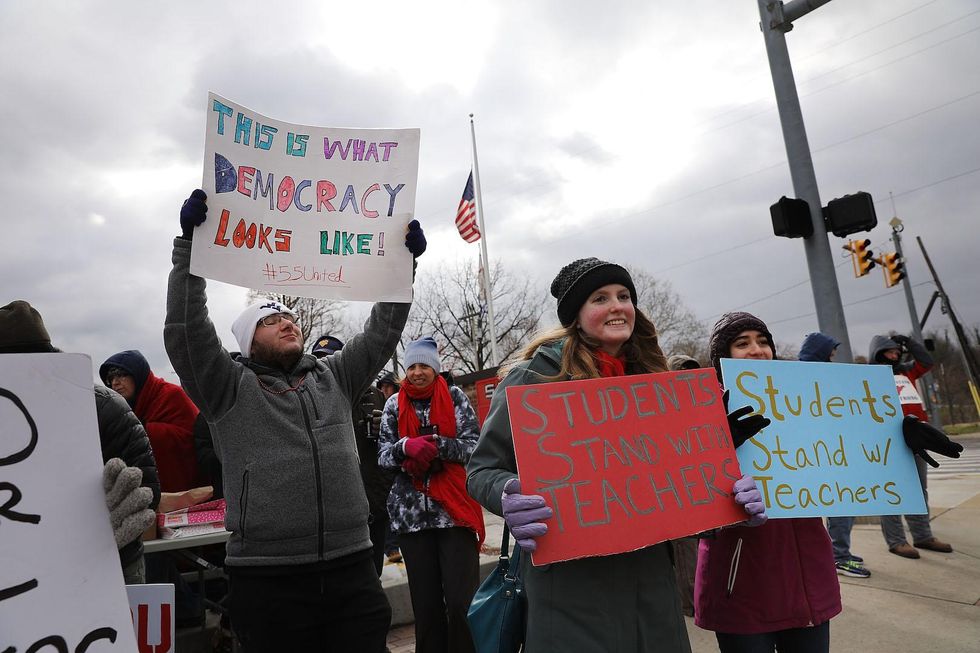
MORGANTOWN, WV - MARCH 02: West Virginia teachers, students and supporters hold signs on a Morgantown street as they continue their strike on March 2, 2018 in Morgantown, West Virginia. (Photo by Spencer Platt/Getty Images)

Teachers in West Virginia continue their more than week-long strike today. Here are some things you should know:
The strike has now kept students out of classrooms for eight straight school days.
This strike has been statewide, affecting public schools from all 55 counties in West Virginia.
Public school teachers in West Virginia are the lowest-paid in the entire country. The average salary for these teachers is about $45,000. While Gov. Jim Justice supported a 5 percent pay raise for teachers, that bill failed to pass in the state Senate due to concerns over funding. The Senate sent a compromise 4 percent bill to the state House, which was promptly rejected.
In addition to higher pay, teachers unions are demanding that teachers pay lower premiums for the Public Employees Insurance Agency.
Republican legislators have argued that the state budget does not have the money to pay for a 5 percent pay increase. Democratic state Sen. Ron Stollings slammed this mentality as being “penny wise and pound foolish.” Both houses of the state Legislature are controlled by Republicans, but both the House and Republican (as of August when he switched parties for the second time) Gov. Justice have supported the 5 percent raise.
On March 3, the Senate approved a House bill to give teachers the full 5 percent raise — but only because of a clerical error. When the state senators realized that they had voted for the 5 percent raise House bill, instead of a 4 percent Senate version, they quickly worked to cancel the vote, which they did successfully.
At 4 p.m. Monday, a committee made up of three members each from the House and the Senate will meet to try to come up with a bill that the entire West Virginia Legislature can agree to pass.
In 1990, the West Virginia Supreme Court ruled, “Public employees have no right to strike in the absence of express legislation or, at the very least, appropriate statutory provisions for collective bargaining, mediation, and arbitration.”
At a news conference on March 1, West Virginia Attorney General Patrick Morrisey said that he considered the teachers’ “work stoppage” to be “unlawful.” “Once this office receives authorization, we’re prepared to act,” he added.
When asked if the strikes were illegal, West Virginia Education Association President Dale Lee responded “probably yes,” the Charleston Gazette-Mail reported Feb. 20.